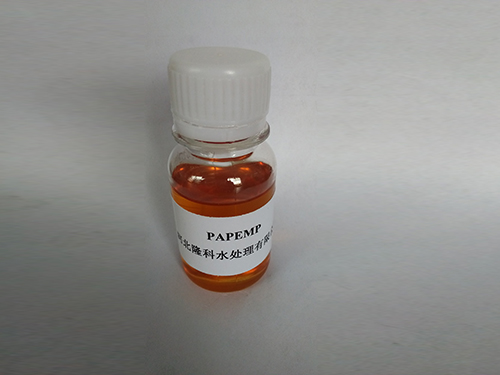scale and corrosion inhibitor for cooling tower
Scale and Corrosion Inhibitors for Cooling Towers
Cooling towers play a crucial role in various industrial processes by removing waste heat from cooling water systems. They are essential for maintaining efficient operations and protecting equipment from overheating. However, the presence of scale and corrosion within these systems can significantly impede their performance and shorten their operational lifespan. Therefore, the application of scale and corrosion inhibitors becomes vital to ensure the longevity and efficiency of cooling towers.
Understanding Scale and Corrosion
Scale formation is primarily caused by the precipitation of minerals present in the water, particularly calcium and magnesium. As water is heated in the cooling process, its solubility limits are exceeded, leading to the crystallization of these minerals on heat exchange surfaces and other components of the cooling system. Over time, scale buildup can restrict water flow, decrease heat transfer efficiency, and lead to increased energy consumption.
On the other hand, corrosion is the deterioration of materials caused by chemical reactions between water and metals in the cooling system. Factors such as oxygen concentration, pH levels, and the presence of aggressive ions accelerate corrosion rates. The implications of corrosion are severe; it can result in leaks, equipment failures, and costly downtime, not to mention the potential safety hazards involved.
The Importance of Inhibitors
To mitigate the adverse effects of scale and corrosion, the use of inhibitors is essential. These are chemical substances that are added to the cooling water to prevent or reduce scale deposition and corrosion rates. Inhibitors can be broadly classified into two categories scale inhibitors and corrosion inhibitors.
Scale Inhibitors work by altering the crystallization processes of scale-forming minerals, thus preventing them from adhering to surfaces. Commonly used scale inhibitors include phosphonates, polyacrylic acids, and various organic compounds. These substances can effectively disperse scale-forming particles, keeping them suspended in the water until they can be removed.
Corrosion Inhibitors, on the other hand, act by forming a protective layer on metal surfaces, shielding them from the corrosive effects of water and oxygen. They can either be inorganic (such as chromates, nitrites) or organic (such as amines, fatty acids). The choice of corrosion inhibitor depends on several factors, including the metal composition of the cooling system, water chemistry, and operational conditions.
scale and corrosion inhibitor for cooling tower

Selecting the Right Inhibitors
When selecting scale and corrosion inhibitors for cooling towers, several factors must be taken into consideration
1. Water Chemistry A thorough analysis of the water used in the cooling loop is essential. Parameters like pH, total dissolved solids (TDS), hardness, and the presence of specific ions will guide the selection process.
2. Compatibility The inhibitors chosen must be compatible with the cooling system materials. Certain chemicals may react unfavorably with other treatments or materials, leading to additional complications.
3. Environmental Regulations The use of inhibitors should comply with local environmental regulations. Consequently, eco-friendly and biodegradable inhibitors are becoming increasingly popular due to their reduced impact on the environment.
4. Cost-Effectiveness The overall cost of inhibitors, including application and maintenance, should be carefully evaluated. While some inhibitors may have a higher upfront cost, their efficiency in reducing downtime and maintenance can make them more economical in the long run.
Conclusion
Effective management of scale and corrosion in cooling towers is critical for maintaining system efficiency and prolonging equipment lifespan. Implementing appropriate scale and corrosion inhibitors can provide significant economic benefits, reduce energy consumption, and enhance safety in operations. By understanding the nature of the cooling water and the specific requirements of the system, operators can select the most suitable inhibitors to achieve optimal performance and reliability. In a time where industrial operations are under increasing scrutiny for sustainability and efficiency, investing in the right treatments becomes not only a matter of operational integrity but also of environmental responsibility.
-
Understanding Polycarboxylic Acids: Properties, Applications, and Future PotentialNewsJul.28,2025
-
Scale Inhibitor Explained: How to Protect Your System from Limescale and Hard Water DamageNewsJul.28,2025
-
Scale and Corrosion Inhibitors: Essential Chemicals for Industrial Water System ProtectionNewsJul.28,2025
-
Polyaspartic Acid: A Biodegradable Polymer for Sustainable ChemistryNewsJul.28,2025
-
Isothiazolinones: A Versatile Antimicrobial Class with Industrial Power and Regulatory ChallengesNewsJul.28,2025
-
A Deep Dive into 2-Phosphonobutane-1,2,4-Tricarboxylic Acid (PBTC)NewsJul.28,2025





